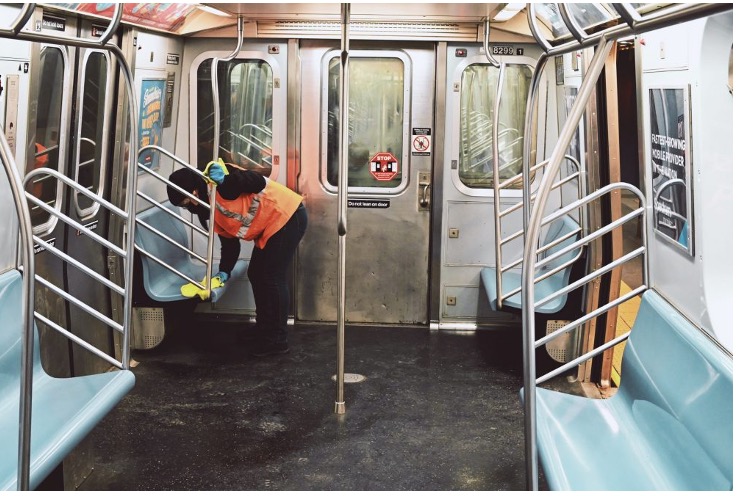CommentsGUEST COMMENTARY - At a time of children with popsicle-covered faces running around and summer music festivals– many are celebrating the end of the COVID-19 pandemic.
Beyond celebrations though, parents of children under 5 scramble to pediatrician offices while immunocompromised folks try to navigate daily life with deadly risks. Healthcare workers face long-term burnout and abuse from patients, long past praise as heroes and applause at the turn of shifts.
The response to the pandemic and surrounding conversations are about much more than masks, vaccines, and school policies. Beyond the vote, petitions and protests have been an advocacy tool for either stronger protections or the removal of pandemic restrictions.
The spectrum of protest and political engagement may have the appearance of representing a range of voices in the spirit of democracy. In a country where free speech is paramount, aren’t all voices heard if they simply speak loudly enough?
The reality is that for many of those most impacted by COVID–the migrant ‘essential workers’ that kept the service economy afloat during the pandemic–their protest and dissent are not tolerated the same way as other groups.
Immigrants across the United States work alongside American citizens in every industry, including healthcare, food, sanitation, and transportation — critical jobs society depends on daily.
A substantial population of U.S. agricultural Laborers Are Immigrants, notable at a time when Global Food Insecurity is at a critical point. The crops harvested to keep food on dinner tables could not be harvested via Zoom.
Every work shift for them, beyond navigating transportation, childcare, and other obstacles, carried the potential for additional exposure to the virus.
Once enough people were sick, we also saw that, thanks in part to Social Determinants Of Health, diverse and immigrant communities were more vulnerable to severe illness from COVID-19. According To The CDC, Native American, Black, and Hispanic persons were 2.2 – 3 times more likely to be hospitalized and 1.7 – 2.1 times more likely to die of COVID than non-Hispanic white people. Last year, NPR Reported on the shockingly high COVID deathrates for Filipino nurses, despite being 4 percent of the RNs working in the U.S.
Survey data from our work at the Immigrant Visibility and Political Activism Research Collaborative (IVPARC) shows that U.S. host communities tolerate political participation from immigrants less than activism by native-born citizens.
Even among immigrants, Americans perceive a hierarchy, with 13 percent of survey respondents believing that naturalized citizens do not have the right to protest, compared to 23 percent for immigrants with a temporary visa, 33 percent for undocumented veterans, and 53 percent for undocumented migrants in general.
With deeply entrenched expectations concerning how and if people from different backgrounds should voice their opinions, those who were most harmed by the pandemic, ‘essential workers’ or not, have less of a voice.
This intolerance has harmful, even deadly consequences. Peaceful protests turn violent when met with Counter-Protesters. Rising rates of U.S. Hate Crimes against immigrants, with a disproportionate impact on Asian American Communities, make it clear that it’s not just the virus threatening safety. Even as many immigrants endure insecurity and marginalization, their efforts to speak up for rights and protections are met with suspicion, fear, and outright intolerance.
It’s an incredible privilege to speculate how others should advocate for themselves in life-or-death circumstances. When critiquing these voices and how they’re expressed, we owe it to ourselves to consider what would be acceptable? Is it the way they are protesting or that they are speaking up at all?
Moving forward productively requires an honest look at the fact that we expect political silence and invisibility from those same workers who have risked and suffered so much for the collective good.
(Chris Langevin is a doctoral researcher at University of Massachusetts Boston in Global Governance and Human Security.)





